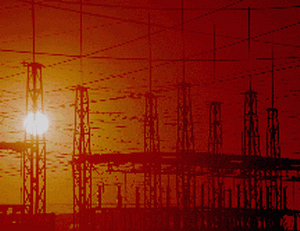Australia will not achieve its emissions reductions targets until it ends the “culture war” on climate policy, Labor frontbencher Mark Butler has said.
Speaking at the Carbon Market Institute emissions reduction conference in Melbourne on Wednesday, Butler said that Australia was a case study in how “toxic politics” could stymie efforts to decarbonise the economy.
Australia should follow the example of the United Kingdom, he said, which has maintained bipartisan commitment to its climate policies through Brexit and divisive debates around immigration despite a “similar media market”.
He said he was not sure that the national energy guarantee (NEG) was the right mechanism to achieve that bipartisanship but said he was “open to that discussion.”
Butler said high-polluting industries that fought against the a carbon pricing mechanism under the previous Labor government now wanted an emissions reductions mechanism.
One of the most vocal opponents in the Gillard era, Rio Tinto, confirmed at its annual general meeting on Wednesday that climate concerns had played a role in its decision to pull out of thermal coalmines in New South Wales.
According to the Australian, chairman Simon Thompson said the decision to withdraw from coal was “based purely on value [but] we very much took into account the implications of climate change for the supply and demand of the commodity going forward”.
Claire Savage is deputy chair of the Energy Security Board, which was established to provide advice on the energy policy overhaul. She told the conference that Australia needed integrated energy and climate change policy and the NEG was “an opportunity for bipartisanship on a mechanism to deliver emissions reduction”.
It does not follow that bipartisan acceptance of the NEG would mean a bipartisan position on emissions reductions targets, Savage said.
“Industry do need confidence around the mechanism that will operate and the framework within which the targets will change.”
Savage also said Australia should focus on energy efficiency as the main policy lever that could reduce energy prices, reduce emissions and increase reliability.
“Reducing peak demand is a way of dealing with peak demand,” she said.
Butler said addressing the inefficiency of Australian industry and households was “critical” to both reducing costs and ensuring supply.
“We have an enormous challenge in that we’ve gone from being a low-cost energy economy to a high-cost energy economy but we’re still behaving like a low-cost energy economy,” he said.
Butler and Savage were speaking on a panel that included the Greens leader, Richard Di Natale, the Nationals MP Damian Drum and the Australian Industry Greenhouse Network chief executive, Susie Smith.
Di Natale said the Greens would consider supporting a policy of either party if it felt it was a “step forward,” and the NEG was not.
Drum said the push for renewables in the form of state-specific targets was “bullshit” if it came at the expense of affordable dispatchable power.
“We all love to have a social conscience, just think about your social conscience when you get the price of energy to the stage where mums and dads can’t pay their bills,” he said.
Drum said that Australia’s capacity for gas electricity generation had been “hijacked by liars.”
“Gas is half the emissions of coal, and better, and it’s dispatchable and it’s available and we lock it up,” he said. “We lock it up for political reasons. I continually get challenged, ‘Hey mate, why don’t you blokes accept the science on climate change?’ I say, ‘Mate, I do, why don’t you accept the science on gas?’.”
By Calla Wahlquist, May 2, 2018



